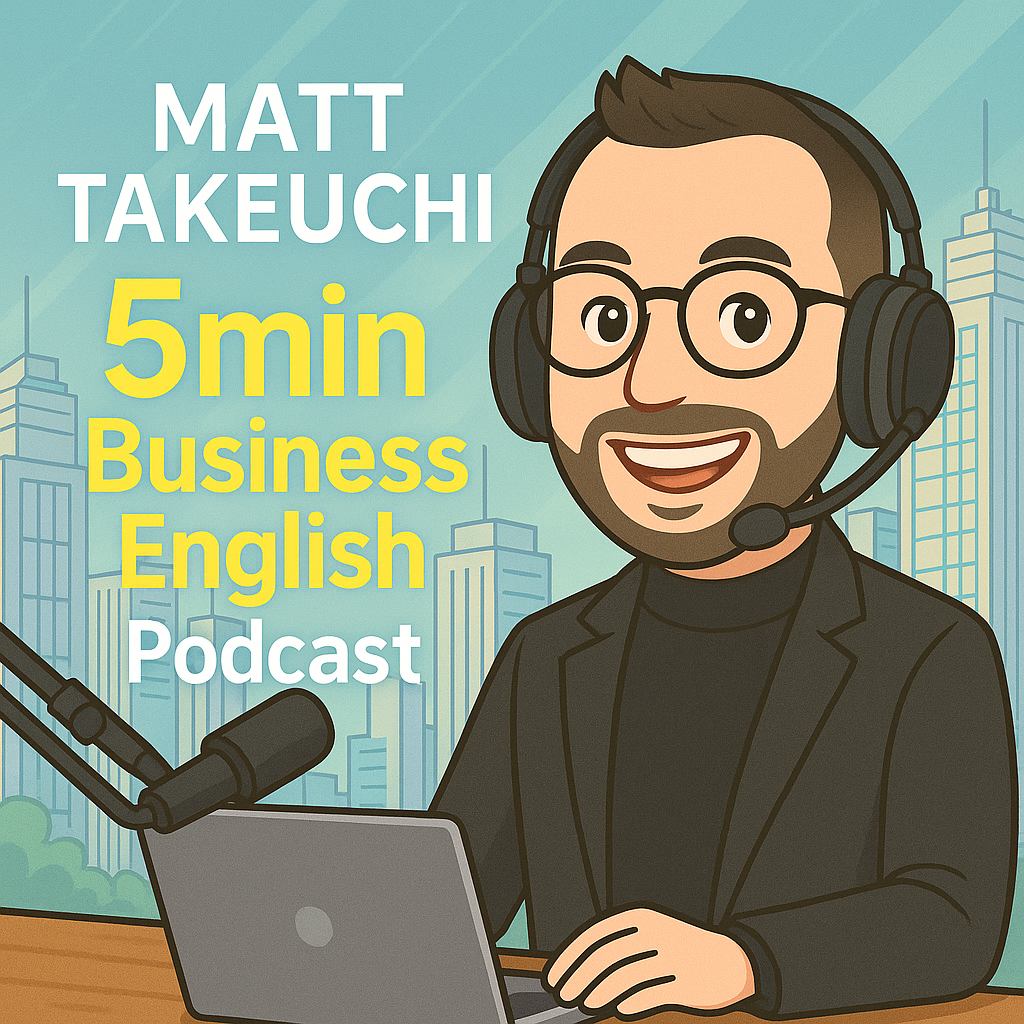海のための戦い Fight for our oceans
今回の記事は「海のための戦い」Facebookを通してNaoyukiさんから以下のコメントをいただきました。
マットさん、おはようございます。
いつも朝の通勤電車の中でお聞きしています。
英語の勉強だけでなく、世の中のトレンドや最先端の技術、意識等々のご提供、毎日のモチベーションを上げるために貴重な時間となっています。
有難うございます。
さて、本日の海ゴミのお話ですが、どうしても一点だけご指摘したい点がありまして、書き込みさせて頂きました。
放送内で、"海に"ゴミを捨てるような表現が何度かありましたが、海のゴミのの過半数は"陸(おか)"から流れ着くものです。
駅前にポイ捨てされた吸殻が回り回って海のゴミとなるのです。公園に捨てられたコンビニおにぎりの包装が川に流れて海までやってくるのです。
海に来た時にだけ注意するのではなく、陸にいる日常生活の中で、プラスチックゴミを減らすことをしなければ、問題の解決にはなりません。
「海のゴミの大半は陸からやってくる」ことを是非ご理解頂きたく、宜しくお願いいたします。
という事だそうです。ゴミは海辺からだけではなくむしろ陸から海に流れるとの事。我々日常の生活の中で意識革命が必要になりますね。Naoyukiさんありがとうございます。
今回のポッドキャストです。お聴き下さい。
本日のSentence
However, change can only happen if an individual takes interest and convinces others to follow the ban-plastic league.
しかし、個人が関心を持ち、他人に反プラスチック団体に従うよう説得するようにならなければ、変化は起こらない。
league=【名】同盟
convince=【他動】確信させる、納得させる、説得する
initiative=【名】自発性、独創力、主導権、イニシアチブ
collective=【形】共有する、共同で作る
ボキャブラリー
| alarming | adj | 警報、恐怖。心配な、平静を乱す |
|---|---|---|
| threaten | verb | 兆候がある、の前兆となる。何かに危害を加える可能性がある |
| discard | verb | 取り除く。もはや望まない、または必要としない何かを一掃すること |
| outcome | noun | 結果。何かの結果 |
| junk | noun | 廃品、くず。不要またはほとんど価値がなくなったと見なされた古いまたは捨てられた物 |
日本語訳
プラスチック廃棄物による海洋汚染が、憂慮すべきほど増加している。これにより、海洋生物が脅かされている。たばこの吸い殻、コーヒーカップやティーカップ、捨てられたプラスチック瓶、ビニール袋、ストロー、ビールの缶などの廃棄物が、後のことを考えずに海や浜に捨てられている。
海洋のごみによって深刻な影響を受けている国のひとつがカナダだ。2016年9月、プラスティック廃棄物を含む40トンのごみがバンクーバー島の浜から引きずり出された。
調査によると、2050年までに海は魚よりもプラスチックの方が多くなるという。海に捨てられたプラスチックから細断されたマイクロプラスチックが、大きな懸念になっている。
現在の状況は、法的手段や人々による集団的取り組みを必要としている。しかし、個人が関心を持ち、他人に反プラスチック団体に従うよう説得するようにならなければ、変化は起こらない。
原文です
Fight for our oceans
Underneath the pristine beauty of the ocean, there has been an evolution of an alarming crisis of plastic pollution and ocean trash exposing the peril to aquatic animals. Waste including cigarette butts, coffee or tea cups, discarded plastic bottles, plastic bags and straws, and beer cans thrown in the ocean and beaches without considering its consequences is degrading the oceans. Though it's a global epidemic, it is now slowly penetrating in the beaches and oceans of Canada. To combat this issue, many international non-profitable environmental organizations are cleaning debris on the oceans and beaches. Affected by the predicament, many people have joined and are still joining as volunteers to help the organizations. They aren't paid for it. They do it for their sheer interest to save the tranquility and splendor of the beaches.
In September 2016, 40 tons of garbage including plastic was dragged out of the beaches of the Vancouver Island by the collaborative effort of eight groups. The volunteers segregated waste items that either needed to dumped or recycled. According to the estimate revealed by the U.S. National Oceanic and Atmospheric Administration, 1.4 billion pound of junk goes into the ocean each year. Most of the trash is believed to be hailed from 2011 Japan tsunami. Environmental organization Surfrider Foundation, that has a network of 50,000 members around the world who volunteer to protect the world's oceans, scours the beaches of Vancouver Island every month. Such is the demand of nature at the moment.
A study from 2015 revealed that 5.25 trillion parts of debris are found in the oceans and this is surging day-by-day due to lack of individual interest to forbid the dumping of garbage in the ocean. Another research disclosed that by 2050, the ocean will be left with more plastic than fish.
According to Ellen MacArthur Foundation's report, The New Plastics Economy unveiled in January 2016, the plastic production has escalated twenty times since 1964. This is likely to exceed twofold in the forthcoming 20 years and four times by 2050. The new plastic is expected to consume 20 percent of the oil produced by 2050.
The report stated, "In a business-as-usual scenario, the ocean is expected to contain one ton of plastic for every three tons of fish by 2025, and by 2050, more plastics than fishby weight. At least 8m tons of plastics leak into the ocean – which is equivalent to dumping the contents of one garbage truck into the ocean every minute."
What's causing major concern is the micro-plastics shredded from the plastic thrown in the ocean. Once the plastic goes into the ocean, it becomes hard due to sunlight. Due to the strong waves, it breaks into micro parts, sometimes even smaller than five millimeters. And so, micro-plastics become a part of the food chain of marine life including turtles and fishes, and birds. This consequently becomes the part of human food chain. An additional reason to worry is the blanketing of the seabed by tattered plastic. Though the outcome is obscure, it is a hazard for the env ironment and marine life in future.
However, to be more exact, the researchers are exploring the repercussions of micro-plastics on the ocean life. An overview was shared by the Vancouver Aquarium's Ocean Pollution Research Program manager Dr Marie Noel. She said, "We found 3,000 particles of micro-plastics per cubic meter of seawater… which is a significant amount." The complete report is expected to be unveiled a few months later.
Fifty percent of the plastic used by the consumers for the first time is thrown away. There is a misconception that the entire plastic gets recycled. Contrary, only five percent of the plastic produced is recovered. Out of the total waste generated, plastic owns a share of ten percent. The degrading of plastic takes around 500-1000 years. In a recent case, 30 plastic bags were found in the stomach of a whale near the Norwegian Coast.
The current situation demands action under legal course and collective initiative by the people. A stringent legal ban should be implemented under the policies executed by the government. MacArthur suggests new techniques be adopted to eliminate plastic waste. The manufacturers should make plastic that can be easily recycled and fertilized.
People should be encouraged to reuse plastic bags and bottles rather than dumping it into the ocean or beaches after one use. Avoid the use of plastic bags while shopping groceries, outfits or any other item by either taking your own cloth bag or making space in the vehicle for purchased products. Say no to the packing of food items in plastic bags. Items offered in multi-purpose bags or boxes should be preferred. Use of plastic straw at restaurant or home should be disallowed. The used plastic products should be thrown in a separate container so that it doesn't get clogged with other garbage. People should volunteer for international organizations by participating in beach cleanups and educating others about the detrimental effects of the plastic throwaway. Remember, change can happen if an individual takes interest and convinces others to follow the ban plastic league.
ポッドキャストの続きは  で!
で!
月額1,000円〜 スマホで手軽に始めるビジネス英語学習
「マット竹内の1日5分ビジネス英語」ポッドキャストの英文記事スクリプトは、WISDOM SQUARE で提供のサービス 1日10分ビジネス英語 で配信されています。
1日10分ビジネス英語なら、ポッドキャストの英文記事スクリプトに加えて、内容理解クイズ、クイズランキングなどのコンテンツも充実しているので、ポッドキャストの内容の理解がさらに深まると同時に楽しく英語学習を進めていただくことができます。ポッドキャストから1歩進んだ英語学習をしたい方におすすめです。
1日10分ビジネス英語はスマートフォンでご利用いただけます。初回1ヶ月は無料でお試しが可能です!※1
是非この機会に1日10分ビジネス英語 をお試し下さい。
今すぐ無料お試しを申し込む※1 初めてご利用の方、1回限りとなります。

